Sándor Csányi on banks, planes, and football fields
Exclusive interview with the President and CEO of OTP Bank

- Sándor Csányi is not expecting a deep crisis and is not afraid of the new, still forming bank group as a competitor.
- After numerous acquisitions in the recent period, Hungarian bank OTP plans to perform one more bank purchase in Slovenia before stopping for a while.
- OTP Bank leader Sándor Csányi has a good relationship with Lőrinc Mészáros, Hungary's other dollar-billionaire, even though some are trying to drive wedges between them.
- We could not go deep into the details of questions surrounding Viktor Orbán renting his private plane, but Csányi did have a few things to say about that too.
Our interview with Sándor Csányi, President and CEO of OTP Bank and the President of the Hungarian Football Federation takes place following the conclusion of OTP's general annual meeting closing the 2018 business year, the year when the bank group's profits passed the magical 1 billion Euro mark. Can the group's profits still grow larger in these times when politicians are just starting to talk about a financial crisis being right around the corner? Do you worry about that?
Everybody expects a crisis. But most think that even if that crisis happens, it will be nowhere near as severe as the one in 2008 was. The Hungarian macroeconomy is in a much better shape, and the conservative lending regulation and the abolition of foreign currency loans allowed for the healthier growth of the bank sector. As far as OTP is concerned, I've always believed that you should create reserves during good times. I don't think that there is a bank in the entire world with higher reserves for covering 90+ NPLs (non-performing loans). I'm not sure if our rate of growth is sustainable, but our outturn still has room to improve.
Aren't building reserves and expanding intensely by buying multiple banks mutually exclusive terms?
No, we are very prudent in that regard, and I'm proud of the knowledge built at OTP during the examination of hundreds of banks and going through with dozens of transactions, this allows us to not employ an investment bank when purchasing a bank.
We trust ourselves the most.
We have made several transactions in the previous couple of years, we purchased two banks in Serbia, one each in Bulgaria, Montenegro, Albania, Moldavia and Croatia, and it's no secret that we intend to invest in Slovenia as well, but that will for a while be the end of the acquisitions in the region. We would like to go into Macedonia and Kosovo from Albania, but we would prefer not to be present in Bosnia, as there are three small countries there living next to each other, with three authorities, three supervisory bodies, it would be complicated and costly to enter that market.
You've mentioned in an earlier interview that OTP is venturing into countries of comprehensible sizes, and tries to establish a substantive presence in all foreign markets. The Bulgarian, Russian, Ukrainian, and Croatian daughter banks may seem to support that, but are you certain that entering the Albanian or Moldavian markets could be increasing efficiency? Couldn't it be that OTP just does not want to sit on too much cash in order to avoid becoming a juicy target of hostile takeovers, or of the state itself, and chooses to perform acquisitions instead?
These two banks did not cost a substantial amount of money, and Albania is a young country with a quickly growing economy and an increasing population, and we purchased a rather good bank there from the French group Societé Générale. By the way, we purchased six banks from them, all were proven to be really well-organised. It was also a factor that there is a really strong economic cooperation in the area - if a bank is present everywhere, that is an advantage for entrepreneurs moving around in the region.
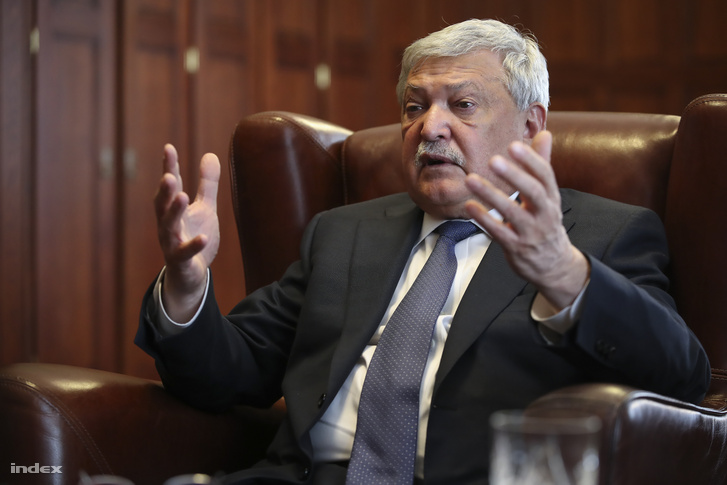
Oftentimes, banks like the US Citibank or German banks follow their large clients to the hinterlands, but what clients can a Hungarian bank group, mainly focused on retail clients, follow to Albania?
Many clients. Let's not forget that OTP is a market leader in corporate banking in many countries. When we expand, we must think of not only our Hungarian but also our international partners - with them, we have a 20-million strong pool of clients.
Prime Minister Viktor Orbán has announced his program of "Hungarian Imperialism," meaning basically that he wants to see Hungarian capital bringing more profits home from abroad than the profit that is "taken out" of the country by foreigners. OTP is known to have been allocating capital abroad for a long time, have you received any kind of positive reinforcement from the Prime Minister for that?
We do not talk about this in that regard, but there are advantages to being present in Transylvania, Serbia, or Slovakia. Hungarians living beyond Hungary's borders can access subsidies from the Bethlen Gábor Foundation at local branches of OTP.
But our strategy goes back further than that, it was not created during Orbán's governance, we purchased our first banks between 2001 and 2007. We are not going to these places to conquer but to do business.
If we may get back to the 1 billion Euro profit for a moment - this is something that leaders and shareholders of OTP can be really happy about, but what about OTP's clients? The Hungarian National Bank (MNB) often states that the Hungarian bank sector is rather expensive, especially when it comes to payment services. Do you see it that way too?
When MNB revealed their perspective on the topic, we voiced our opinion which did not completely support the assessment of the central bank. The margins in Hungary are the second lowest of all the countries where OTP is present. Take a look at all the burdens on the sector. The bank tax might have been cut, but it's still high, we're paying bank resolution contributions, we're paying transaction levies, we even pay a levy after the free cash withdrawals, while even free services lead to cash-handling, logistical, and amortisation costs.
What's also important is that if certain transactions have more-or-less fixed costs, as mortgages do, these typically small loans create a higher percentage of burdens (MNB measures them in percentages). The size of the average mortgage is 2.5 - 3.5 times higher in Slovakia, Poland, and the Czech Republic, while the fixed costs are mostly the same. The profitability of the Hungarian bank sector is not at all high, its yields fall behind in comparison with what market investors expect from a capital investment in the banking sector. On top of that, the price competition is strong, and most banks invest heavily in developing their services.
So far we've been talking about efficiency, but if one were to take a look at the press about the OTP general annual meeting, the focus is more on the statement that you've made to RTL Klub about how Viktor Orbán always personally pays for his plane trips. Would you help us interpret this statement?
I've made a decision to restrict my statements to the topic of bicycles, I would prefer not to talk about that.
But what did you mean, Viktor Orbán organises government trips or his visits to football matches himself?
I really don't want to deal with this, but obviously, I did not mean that he personally goes to the cashier, takes a number and hands over the money. If I need to pay something, my secretary will wire the money over, but I'm still the one that paid. OTP's subsidiary, Air Invest Kft. is in possession of a plane, and it utilises that plane on the market. Previous Hungarian governments have also taken advantage of that plane, and paid for its use. When I said "personally," I've never thought that the cream of Hungarian journalists would interpret that as the Prime Minister going to the cashier himself to pay personally. My phrasing was not ideal, but the thing is that his portion of the costs of our mutual travels were always billed, and always paid for. The conversation you cited was not about those instances when the Government hired the plane for official purposes. In those cases, the trips were ordered from Air Invest by the Prime Minister's Office's trip organisers.
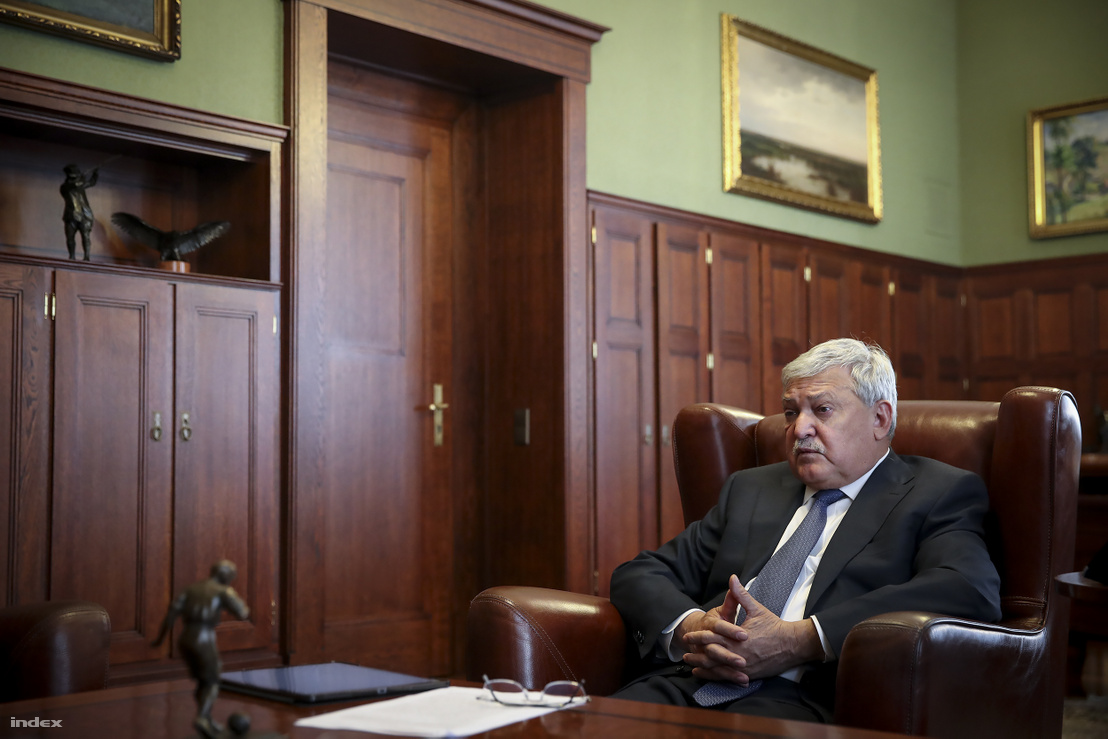
We already talked about the question of foreign currency loans as something that is thankfully already behind the sector. But there are still news about European Court decisions and about the precedent judgements of the Hungarian supreme court, the Curia. Has the bank sector really put all of this behind themselves, or could there still be twists in the story that open these questions up once more?
I don't expect that to happen. I think that the Curia had basically settled these matters. As I've been informed by our lawyers, the recent judgements of the European Court do not contradict the Hungarian supreme judgements. The main question is if the clients were sufficiently informed about the risks posed by the exchange rates or not. We provided sufficient information, and we tried to convince everyone to opt for Forint-based loans, and we only provided foreign currency loans to those who insisted.
Do you agree that foreign currency loans were the product that allowed foreign banks to close in on OTP that was leading the market at the time? They had more experience with such products, and their parent banks provided them with a source of foreign currency. Could OTP have afforded to completely abstain, or would that have meant OTP falling behind?
Those who were involved in this at the time all remember differently. Many communicated that there was no competition on the market of retail loans in the period of the mid-90s and early 00s, competition, therefore, had to be created. OTP did have a serious advantage in terms of Forint-based loans, and the competition could not catch up to us in that segment. But due to their parent banks, the advantage was at foreign banks when it came to foreign currency loans, as they had a natural source of foreign currency.
Foreign currency loans were not at all in our interests.
Could OTP have avoided getting into this product? If I had to make that call today, I might come to a different conclusion, as even back then we have dragged that decision-making procedure out for a year, but our share in new loan placements was decreasing so sharply that it became a worrying phenomenon. We are a publicly traded company, we are obliged to give quarterly information to our shareholders. We had to get into it.
You have said that you do not really care for lists of Hungary's wealthiest people, but if we look into your complex relationship with Lőrinc Mészáros, we see that you're both leaders in football, OTP is providing loans to business interests of Mészáros, but if we look at the fact that Mészáros is one of the key players in the group being formed by MKB, Takarékbank, and Budapest Bank, he seems to be one of your main competitors. What is your personal relationship like?
I have a good personal relationship with Lőrinc Mészáros. And OTP and the companies of Mészáros have a good relationship as well, we have even financed some of them. Our interest is that these companies remain stable clients, and luckily, they do. The Felcsút football, and I mean the reinforcement-pyramid and not the championship team, is well-structured. I hope we will see internationally acclaimed players emerge from there.
You really don't care about who is first on the list?
People always bother me with wealth, who's first, who's second. Although I did not starve during my childhood, I'm coming from a really modest background.
I'd be just as happy with less than what I currently own,
but I'm happy to have a chance to make investments that are bringing profits for the entirety of the Hungarian economy, investments that provide honest employment for ten thousand people. My efforts do not correlate with my material status.
You play chess or cards with complete concentration and the intention to win even if your life does not depend on it. I work for making whatever I'm working on successful. I'm proud of the bank, I'm proud of my agricultural ventures, Pick, Mizo, KITE, and Hungarit by now as well. Anyone buying our products knows that they can eat healthy food that was kept under control throughout the production process. Let me provide an example: We lose 500 million Forints every year on producing soy, but we are not willing to give genetically modified Brazilian soy from an uncertain source to our cattle. The things I care about are things like this, and not things like whose wealth is how big or how these lists are compiled, or if I'm first or fifty-third. Absolutely not.
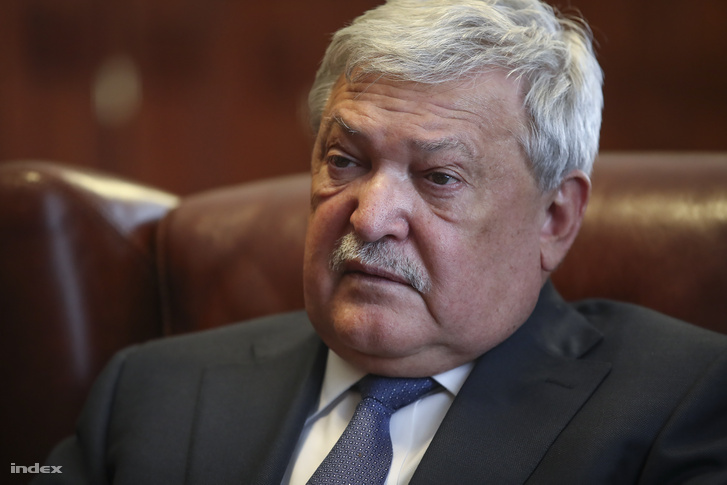
You've mentioned playing cards, and that reminds me - if one plays with low stakes, the winnings themselves are really not that important at all, but it's still interesting to see who wins.
Lőrinc Mészáros likes to work, I like to work, there is no tension between us, even if many people try hard to create that tension.
You've mentioned the youth project of Felcsút's Puskás Academy. Hungarian taxpaying companies have amassed 50 billion Forints (~150 million Euros) in tax-deductible support at the Academy. Do you think the Academy's success is proportional to that number? Or is the whole thing about companies making the Prime Minister happy by supporting something close to his heart?
Well, first and foremost, I like to make statements about Hungarian football in general, and not about the Puskás Academy, as I have less direct knowledge about them, but I will not avoid the question of TAO (tax-deductible support for spectator sports). The press always presents this as if all the money is flooding into the Hungarian premier league. That is not the case, TAO support can only be given to clubs for infrastructural or youth team developments, and if the Federation (Translator's note: Hungarian Football Federation, president of which is Sándor Csányi.) receives TAO support, it uses that to cover 90% of the competition costs for amateur teams such as the cost of the referee or the fee of entering certain tournaments. This is a good cause. The number of teams went from 7500 to 13000, and two hundred thousand people play football in certain championships every week, mostly children. 95% of them have no chance to become professional football players, but they have a good time and they play sports, they are actively doing something for their health. 1100 new football pitches were built on TAO support, and we renovated 1700 older pitches of different sizes.
When we open a football pitch, it's populated within a week. If you regard it in this context, your perspective on TAO supports might be different.
I will not talk about the stadiums as the Hungarian Football Federation has nothing to do with them. If I may address one thing though, no stadiums were built in Hungary ever since the sixties, and if you take the last 50 years and look at how much Hungary has spent on such things, we wouldn't be amongst the world's highest spenders. In the meantime, all football-loving nations think that the opportunity to have fun at the matches in a civilised manner is important. This way, women and children might sooner or later return to the stadiums in large numbers. Football is always politicised due to the Prime Minister's person and his love for football, and this leads to a one-sided, unfair presentation of the costs and the social benefits.
How does OTP, lending its name to various championships as chief sponsor, see football? Is this altruism, or is there a marketing value in this?
The Hungarian premier league's name has been OTP League since 2011, and that is where our name is most visible in the Hungarian media. I think this brings in at least as much as it costs us. Besides that, we give TAO support to the Hungarian Football Federation which it spends on football fields in cooperation with schools and municipalities. We ask for 0-30% to be financed by them, we finance the rest by TAO. I sleep well at night - we're not causing losses for our shareholders, and we are not putting the money in a bad place.
I am really about to let go of the topic of Lőrinc Mészáros, but I had a question earlier about your competition in the bank sector. Maybe for OTP it's a good thing that state-owned, or government-affiliated banks start up, fail, get integrated, while the world believes that in a while, this will turn into something that makes sense. The problem for OTP would be if the state-affiliated sphere looking for financial services would set their minds upon acquiring OTP. Do you see any challengers in this sense?
I am not worried about this new formation, but of course, I'm not yet aware who the proprietor of Budapest Bank will be. But we've been facing challenges ever since we started our operation, our competitors were always strong, and they even had the advantage in the corporate world, so we were the challengers there. It's only natural that everyone tries to lure clients away from a large bank, it's no coincidence that we ventured out abroad too.
A country with a 10 million population is too small for OTP,
we might have 20 million clients from 12 countries by the end of the year. There is nothing worse than not having strong competition, this is true for banks, for politics, and for football. If there is no competition, even those who are good perform worse. We always had to stand up to strong competition, which is why we came in as the 9th most crisis-proof bank in the last stress-test that included the 48 largest European banks.
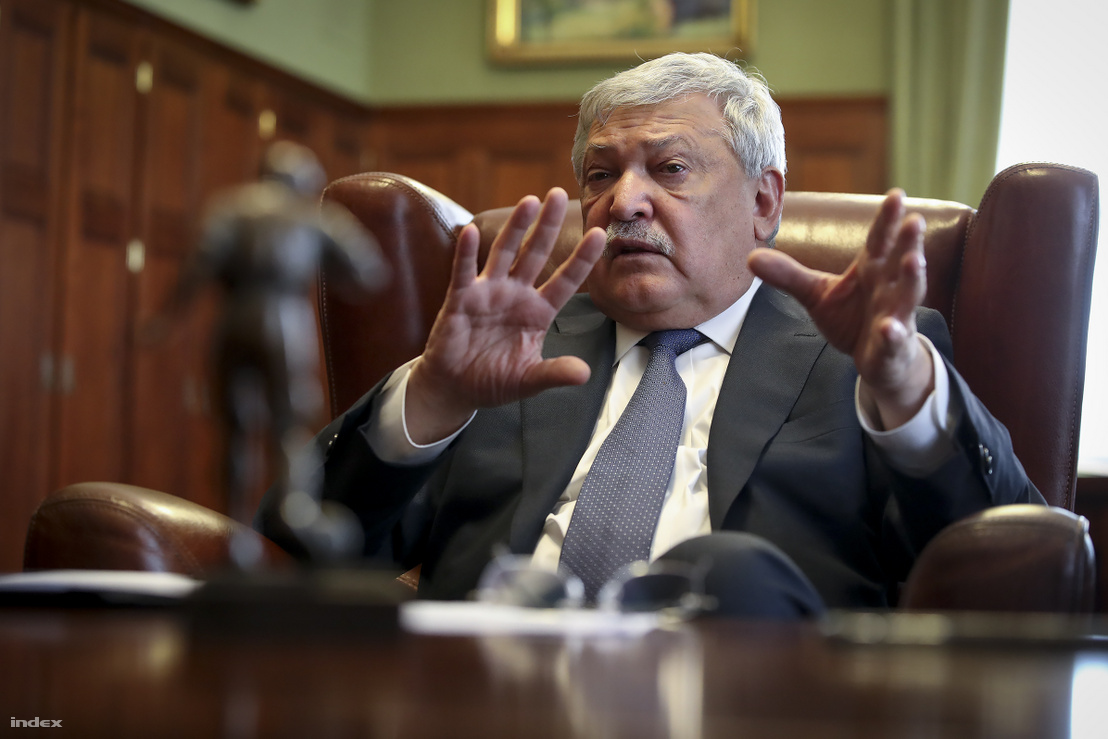
The annual meeting separated the positions of the President and the CEO. Why?
I was the one who suggested integrating these two positions way back when there was an outside effort to separate them. At the general assembly, I emphasised that I do not yet wish to delegate either of these functions to anybody else. I do not feel as if there are any physical, medical, or mental reasons for me to step down. I've never heard it in-house or outside that I should spend more time at home, although I will never hear that in the company. But you need to think ahead: If you have created something, you have to pass it on in a manner that makes sure that it can operate efficiently later on as well, and I have a rather clear notion about that.
But those efforts you're referring to, that attack, it happened in 1995. Why take steps 24 years down the line?
We could have taken steps 20, or 30 years down the line, and it would have been even more urgent in the latter case. The timing had no special reason.
I'm not hoping that you want to send messages through the press, but I must ask: is there anyone in the management who could get into top management after another, later splitting of these functions? I've seen that Zsolt Barna appears right after you on OTP's organisational chart on the website.
Does he? (checks it on his tablet)
I've seen him in second place.
There is one reason for that, deputy CEOs appear in alphabetical order. Zsolt Barna is first, László Bencsik is second, László Wolf is last, even though he's also a board member. There is your explanation. If someone wants to be ahead of him, they would have to change their name, although this question will not be decided by the alphabet. By the way, Zsolt Barna is an outstanding professional, we knew him from his time as a bank supervisor, then he started working in the bank, in the area that he now leads, and he also worked at our fund managers. If I am not in Hungary, he covers for me in handling operative cases. And Tamás Erdei was elected as vice president of the Board.
Doesn't it send the wrong message that a banker, who previously lead MKB, a bank that needed a 2 billion euro capital injection from its owner, the German BLB, is now the Vice President of OTP?
The Board's vice presidential position is a position of trust, which is why I chose Tamás Erdei. Experience is always experience, and he was successfully at the helm of MKB for decades, he used to be the president of the Bank Federation, and he was always regarded as a representative of the sector by its members, and as a negotiating partner by the governments of Hungary. The area where the risks and losses appeared, project financing, was an area that belonged to a leader appointed by the Germans.
How do you transfer leadership within such a large company as OTP? Can you get people to compete, or do you need to eventually appoint someone as your successor?
There is no model for this. For someone to be eligible for such a position, they need to have the necessary qualifications, with the preferably international experience, along with a good command of languages, and they need to have the necessary personality traits. How one handles failure is not as interesting as how success affects them, because that is more dangerous. We need a person who doesn't want to make himself and others around him believe that he is infallible, or that he's qualified to do everything.
If somebody thinks they don't need to be controlled, that can lead to huge trouble.
A good leader is not the smartest person at a company. More than that, if someone is unable to hire experts who know more than they do, that person is incapable of being a leader. There are many OTP leaders with whom I would not dare to enter into a professional argument in their fields, but that is really not something that I have to do. What I have to do is to find the best people. The significance of this with regards to the succession is that the person who will fill my position has to be someone who is modest, prudent, a good team-player, builds on his or her colleagues in management, and accepts that he or she is only the first amongst equals.
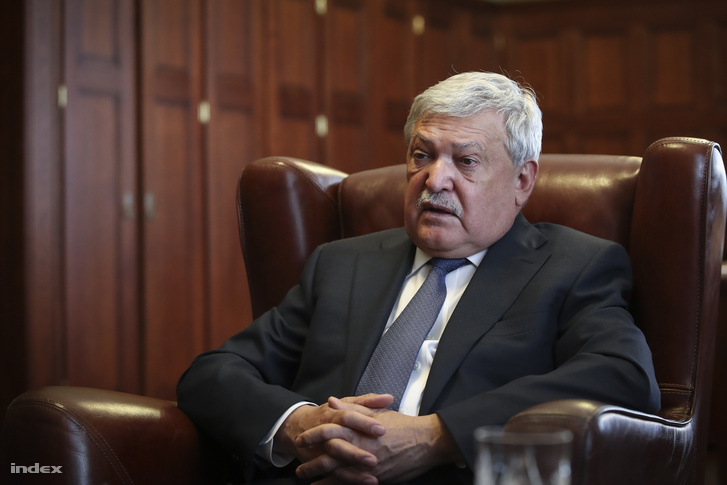
You've mentioned that you don't often encounter opinions where someone would prefer to see you elsewhere. I would not necessarily want to be the first to present you with such an opinion, but as you spend a lot of time on international football, have you never thought about retiring to the helm of a large football federation? As vice president of both UEFA and FIFA, you are the third most important person there besides Slovenian UEFA-president Aleksander Ceferin and Italian-Swiss FIFA-president Gianni Infantino. Don't you foster presidential ambitions?
This is not on my agenda. For one, UEFA has become much stronger under the new president and they are doing good work, and Infantino is the only candidate for FIFA's summer management renewal. For me, the amount of work I already have is more than enough: Besides the two vice-presidential positions, I'm the head of UEFA's National Team Competitions Committee, I'm a member of UEFA's Professional Football Strategy Council, and I'm on many other committees. I don't want more.
You've already talked about your investments in the food industry. Do you have enough time for them, do these companies perform well? The slaughterhouse in Mohács was rumoured to have had a tough start...
I don't have enough time, but these companies are managed by my son, Attila. We're on the right track, there are always challenges, but we've had some good years despite the costly genetic switch that is currently happening in the pork industry, the segment that is paramount in our portfolio. In cases like this, we throw away the stock, refurbish the barns, we disinfect. But Pick is roaring. Mohács had two issues, right at the start, the price of pigs increased, and then African swine fever struck and the best export markets were sealed shut. Besides that, we also made some other mistakes, but we will solve these issues. The milk industry is always changing, second to last year was good, last year was a little worse. Agricultural companies - Bóly, Dalmand and Agroprodukt - are amongst the most modern in the country, and even if the weather does affect our yields, they are stable and operational. Hungerit was an acquisition we've made last year, and it's too early to evaluate, but our winery already regularly produces above zero results. There are many developments on their way in the food industry, but there are some issues in that regard due to the prices of construction increasing, but we'll get through that as well. The KITE agricultural integrative company is also performing well.
Many of your competitors in the industries you have mentioned have become subjects of various investigations. László Bige in the sector of agricultural integration, Piero Pini in the pork industry are at the focal point of investigations, the home of Zoltán Spéder, who tried to invest in the bank sector, has also been raided. Is it so bad to be a challenger of Sándor Csányi?
I have many business interests, therefore I have many competitors, and you have not even mentioned my most direct competition. According to the news they've had a conflict with the law, and not with me.
But what do you think in such situations? "My market positions will be better?" Or does it send a bad message that anyone in the business world can be subject to such intense investigations? Or do you read these articles as a simple consumer?
I look at these news from the position of a consumer, but let me repeat: They did not have a conflict with me, and I think that is the most important with regards to your questions.
You said you don't compare yourself to other billionaires in the region. But why is it that while other billionaires in Central and Eastern Europe such as Andrej Babis, or Petr Kellner are active in other countries as well, and while OTP is a regional player, your private investments seem to focus solely on Hungary...
The heartland is always the most important. If your supply line is not alright, you cannot start a war. That was the order of matters in OTP as well, but our agricultural group already contains German, Slovakian, and Romanian companies. We have things to do at home, but we are about to start our activities abroad as well.
This article is the direct translation of the original interview publishedin Hungarian by Index.
(Cover photo: Sándor Csányi. Photo: István Huszti / Index)

Support the independent media!
The English section of Index is financed from donations.



Ne maradjon le semmiről!
Follow us on Facebook for more English coverage on Hungary.